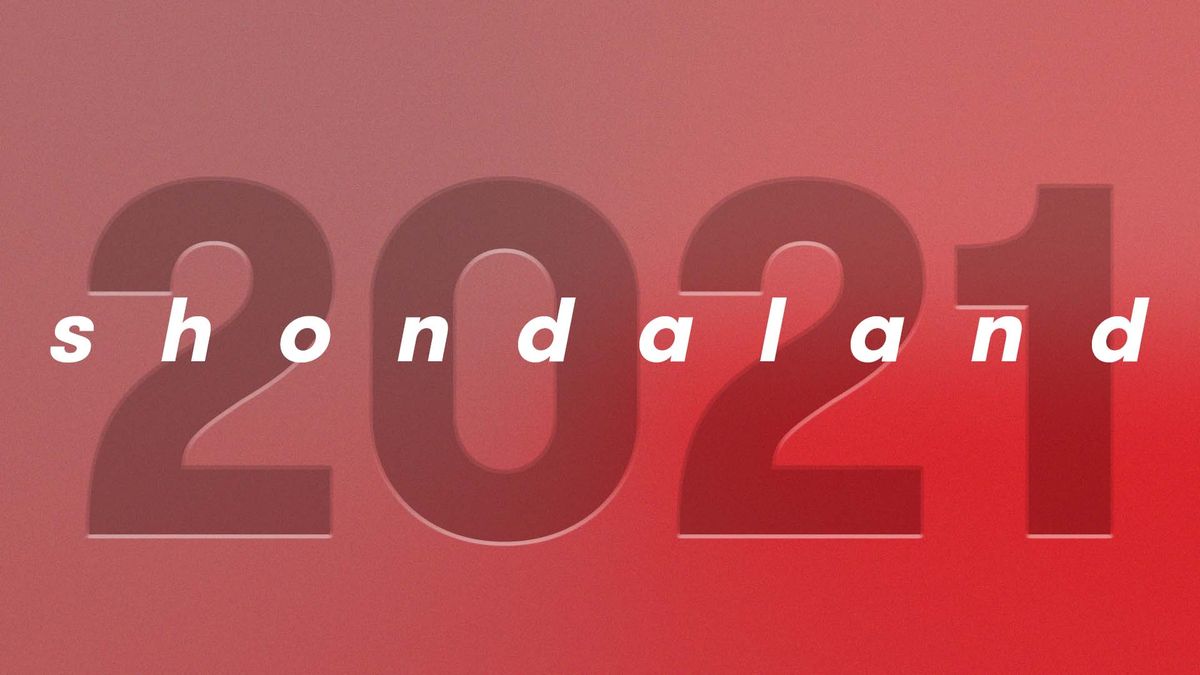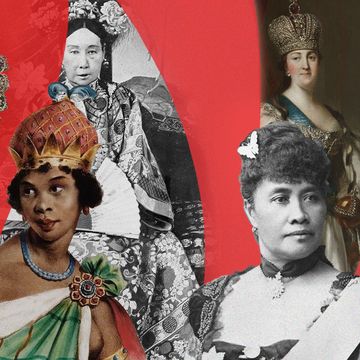Sometimes it’s best to hide your identity — just ask Penelope Featherington. In the world of Bridgerton, the character, played by Nicola Coughlan, regularly causes a stir throughout Regency London by writing, as Lady Whistledown, Society Papers, a gossip-filled column that reports on all the inner workings of high society. While Penelope surely can’t reveal her true self as she upends London’s social scene, it’s not always the case that writers need to adopt a pseudonym to ensure secrecy. In fact, there are many reasons to publish under another name, as authors throughout history have proved.
Pen names throughout history
One of the most famous pseudonyms in history is Mark Twain, a pen name taken on by Samuel Clemens, which first appeared in the Territorial Enterprise on February 3, 1863. It’s unclear exactly where Clemens got the name — one supposition is that it came from a Mississippi riverboat captain — but as Mark Twain, the writer went on to publish The Adventures of Tom Sawyer in 1876 and Adventures of Huckleberry Finn in 1884. Other authors have had similar success with pen names: Theodor Seuss Geisel became Dr. Seuss, Eric Arthur Blair reimagined himself as George Orwell, and Mary Anne Evans transformed into George Eliot. Even famous contemporary authors have alter egos. J.K. Rowling, for instance, also writes novels under the name Robert Galbraith, and Stephen King has published for decades as Richard Bachman.
“I did that because back in the early days of my career there was a feeling in the publishing business that one book a year was all the public would accept, but I think that a number of writers have disproved that by now,” King explained in an FAQ on his website, noting that, originally, he was going to use Gus Pillsbury. “I’m one of them, and the guy who writes the Along Came a Spider books is another one who’s written two or three books a year. Danielle Steel usually publishes two books a year. So, the public will accept more than one book from a writer in the course of a year.”
While pen names have traditionally been popular with novelists and authors, they’ve also been taken up by columnists — much like Lady Whistledown. Abigail Van Buren, who penned the famous advice column “Dear Abby,” was actually Pauline Phillips, and later her daughter Jeanne Phillips. Jeanne currently owns the rights to the name and has continued the column since her mother handed it off to her in 2000. Similarly, “Ask Ann Landers” was created by Ruth Crowley in 1943 and taken over by Eppie Lederer in 1955. Lederer, notably the sister of Pauline Phillips, continued doling out advice as Ann Landers until 2002.
Gossip columnists, too, tend not to use their real names. Mario Armando Lavandeira Jr. made a career for himself as Perez Hilton. The celebrity blogger, who has never attempted to be anonymous, took the moniker as a play on Paris Hilton. For some, using a pen name to spread gossip can help create a feeling of distance from their personal life, while for others, like Hilton, it aids in connecting them to celebrities.
In any case, writers have a lot of reasons for adopting a pen name, from trivial to essential — and on occasion, distance from a birth name can be lifesaving. Chinese writer Michael Anti, born Zhao Jing, has spoken about the importance of pseudonyms for journalists in China, who may be persecuted for their views. In 2011, Anti took issue with Facebook’s policy that users had to create a profile under their birth name, saying, “There is a long tradition in China for writers and journalists to take pen names, partly as protection from retaliation by authorities. If Facebook requires the use of real names, that could potentially put Chinese citizens in danger.” He added, in clarification, “It’s not a fake name, but a professional name in the English-speaking world.”
Modern pen names
When it comes to the use of modern pen names, writers express a myriad of reasons for not using their own names. For one, it can be liberating. “It gives you a little bit more freedom in talking freely about what other people should do and what your experiences have been,” explains Heather Havrilesky, who writes the advice column “Ask Polly” under the pen name Polly. “Even though my name is clearly on my column, and it’s no secret who I am, when I first started writing the column, there was just a sense that I could be more absurd and exuberant and strange and aggressive behind a pseudonym than I would be if it were just ‘Dear Heather.’ In a way, you become your character. Your pseudonym stands for someone who is slightly bolder than you are. As I’ve done ‘Ask Polly’ for years, I’ll slowly become a more bold and courageous person because I’m constantly telling other people to do that.”
For some, using a pen name allows an exploration of new genres or styles. If a writer is associated with one thing, it can be challenging to convince publishers and readers to follow them to something completely different. A pen name, especially an anonymous one, can bring new opportunities.
“Because our respective solo works are nonfiction, it was important that we adopt a completely new identity to write together for [publisher] Orion, and becoming ‘Ellie Curzon’ has allowed us to do that,” explains Ellie Curzon, a joint pen name used by Catherine Curzon and Eleanor Harkstead, who normally write non-fiction but, as Curzon, write best-selling historical fiction. “There’s no confusion around two names on one book, and readers know straight away when they see Ellie Curzon’s name exactly what they’ll be getting. That’s important for them and us because we want our readers to recognize our work at a glance.”
Other writers cite putting certain protections in place, similar to Anti, when it comes to using any name other than their own. “Pen names are a rite of passage for romance writers,” Addie Woolridge, author of The Checklist, explained in an essay for Shondaland that explored why she chose her pen name. “The internet makes it easy for weirdos to find and harass us, so forgoing our real names is as much for our safety as for our mental health. Ask any romance writer how many strange or threatening interactions they’ve had in the past year, and the eye roll that accompanies that question will tell you everything you need to know. The experience is worse as a woman of color writing books with even a whiff of sex somewhere in them. If there is one thing that causes the creepers to send endless amounts of strange mail, it’s the idea of women of color with sexual autonomy.”
Clearly, a lot can go into when and when not to use a pen name. So, while becoming a modern-day Lady Whistledown is probably not recommended, there are a few things to consider when deciding what name to attach to your own work.
To use a pen name, or to not use a pen name
A writer who is interested in creating a pen name should consider several things before officially going out into the world with a pseudonym. Namely, why are you opting to publish something you won’t actually get credit for?
“Cheryl Strayed started writing under the pen name Dear Sugar, and no one knew who she was for a while,” Havrilesky recalls. “When Wild came out, she decided to come out of the closet as Dear Sugar, and that was interesting. Everyone wanted to know who it was because she was so good — so, if you’re trying to build intrigue, as with Bridgerton, a pen name is a good way. Sometimes I think there’s a thirst right now for some sort of wild, obnoxious voices because everyone is so safe. It’s tempting, but I do think you have to take the same kind of responsibility for yourself that you would take if your name was behind it.”
Another important thing to consider is what doors a pen name might open for you, especially if you have an established career that’s unrelated to what you’re writing.
“It can help to give what you’re writing a brand — in our case, an Ellie Curzon saga,” Curzon explains. “The reasons one might choose to write under a pen name are very personal, and similarly there are lots of reasons why one might prefer not to. Having an established reputation with a certain audience might mean that a pen name could be a hindrance rather than a help. For instance, a recognized expert in a certain historical period might prefer to use their own name if they write a piece of fiction set in their period of expertise. But it’s all down to what each writer believes would work for them.”
“I first started my blog in 2014 during a summer holiday as a primary-school teacher,” adds writer Vix Meldrew, who helps brands establish and maintain their online presence. “Knowing what the internet — and nosy children and parents — are like, I decided to use a pen name to create my platforms so that I could express myself freely. I think a pen name as a creative is great because even though you’re building a personal brand, you’ll still want to keep a personal life.”
Safety and privacy are two big upsides to using a pen name. For those who write about controversial topics or who have a second career that might be impacted by published opinions, a pen name is useful. It can also bring a writer opportunities they might not be privy to using their own name. Allison Hope, who often writes on sensitive beats including social issues, sex, relationships, and erotica for publications and outlets like The New Yorker, The New York Times, The Washington Post, CNN, and BuzzFeed, emphasizes that keeping a distance from problematic readers is paramount.
“I have been the subject of hate mail, threats, among other things, [and] once I was on an ISIS hit list, as the FBI informed me,” she says, adding, “I mostly don’t integrate all aspects of my career. That’s the point of my using the pen name. I work hard to maintain space between my worlds and avoid conflicts of interest.”
On the other end of the spectrum, publishing under a different name can mean you build a following under a pen name rather than your own name. If you choose to remain anonymous, that might be detrimental to future career prospects. It’s something to consider before taking on a column or newsletter or even a social-media feed under a pen name.
“There are a lot of reasons to take up a pen name and run with it right now,” Havrilesky explains. “But it could become irresponsible if you took advantage of it. Or, say, you want to write a book someday, but you create this giant audience based on the outrageous stuff that you’ve written under a pen name — if that audience doesn’t translate, that would be rough. You couldn’t parlay it into other things you wanted to do. Artistically, though, I think it might be a way for some people to feel a little freer on the page.”
Still, Havrilesky, who has translated her success with “Ask Polly” into several books, including the recent Foreverland: On the Divine Tedium of Marriage, believes that a pen name has more pros than cons. A writer just has to keep a sense of self, even when working anonymously or under an assumed identity.
“You could argue there are limited ways to be revolutionary and succeed at the same time as a woman in our culture, so you can see a lot of advantages for a person of color or someone who identifies as female to take on a persona,” Havrilesky says. “It’s mostly just the issue of responsibility: Are you going to stand behind what you wrote, or are you writing things you want to disown?”
Emily Zemler is a freelance writer and journalist based in London. She regularly contributes to the Los Angeles Times, Rolling Stone, PureWow, and TripSavvy, and is the author of two books. Follow her on Twitter @emilyzemler.
Get Shondaland directly in your inbox: SUBSCRIBE TODAY
















